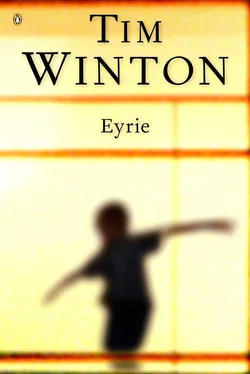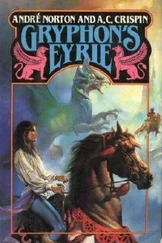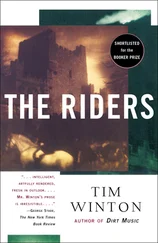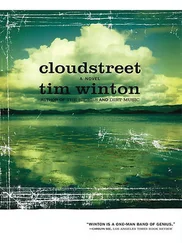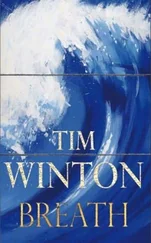He drove down the coast feeling buzzed. Another salvo gone. Every card a mind-bomb. From all points of the compass. Encirclement.
And he yelled through the open windows. Blowing down West Coast Highway, lane to lane, light to light, light from true light.
Our name is Legion, Stewie! For we are many!
The thought of it. That little tweaker. Getting all these cards. Day after day. All with different postmarks, styles, messages, pictographs. It buoyed him. You’re surrounded, Stewie. Outnumbered. Just see the little numbskull turning them over, licking his lips. The girl there, too, probably others, passing them across the table, scoffing, anxious, eyes like schooling fish, searching out any hint of alarm in the others, the paranoia beginning to smoulder. Fuckheads.
Keely had no need of violence. He was smart. Black-ops. He’d always been good at this shit.
Had a tenner left from the steam-clean. Which kind of confused him. But he angled into a servo anyway and found a spinner rack. Bought a few more cards.
And then he was walking along the gallery. The Mirador.
Quite suddenly there.
And there was nothing hanging from Gemma’s door but the last wafting bit of string. He unpicked it carefully and shoved it in a pocket. His own place was stale but with the slider open it cleared soon enough.
There were messages on the machine — an odd one from Faith and something terse from Doris. He didn’t want to call her but the tone of his mother’s voice alarmed him. Jabbed in the number.
What do we need, Tom? she said the moment she picked up. And he saw it was late. Very late.
Tell me, she said. Do we need a neurosurgeon or just detox?
I’m fine, he said. I’m home. It’s alright. I’ll be at yours in the morning.
You need help, love.
I’ve got work, he said. Need sleep.
Work? Why lie to me?
But it’s true.
What are you really scared of?
I just need to sleep. I’m really sorry.
He hung up and stood alone in the little flat a minute. Thought of the trail of sand and spew he’d left through her house, the bag of pills she’d found stuffed in a corner of the couch. Within reach of the child. Not good.
Time for bed. But he was too stirred up.
Then he remembered. Tomorrow wasn’t Thursday. So, no job. Just Gemma to collect at dawn. As promised.
Set the alarm. For five.
Slumped into the chair, turned on the TV. More fat-people shows, cooking shows, forensic investigations, Jeremy fucking Clarkson. Flicked it off.
Fished out the latest cards. Spread them on the kitchen table. Every last one of them a tit joke — something to behold. He found a pencil, a biro, a felt marker. Worked his way through the icons: eyes, gun, cross. In the knife drawer there were envelopes and stamps. In beside his last sheet of Temazepam lay the boning blade he’d taken off Gemma.
He lined up the cards, addressed the envelopes and sealed them. There were stamps enough. He’d make another run tomorrow. Keep it up until Stewart Russell was a blithering mess.
Grainy half-light. Sky green-grey above the desolate carpark. The glass doors peeled back. The bloke in uniform stepped aside to let a dozen workers out onto the sick-lit pavement. In their pastel tunics and smocks they were variously festive, weary, sociable, anxious to be on their way. Gemma and a tall, lithe young man lingered in the supermarket entry. His hair was long and fair and his movements outsized and antic enough to make her laugh and push him away playfully. She turned and caught sight of Keely parked across the deserted tarmac, and as she came on, stepping from the kerb, clutching her shoulder bag, she spun girlishly and shot the bloke a wave.
She opened the passenger door and flopped in, smelling of deodorant and tobacco and something sugary.
Snake? she said, shoving a cellophane bag his way.
Keely glanced into the snarl of bright colours. Recoiled at the cloying whiff of industrial additives.
Buckle up, he said.
Yes, Dad.
He passed her a takeaway coffee and she grunted. Refrigerated trucks pulled onto the street and the sky was bronze already. He steered them down the promenade of car yards and furniture warehouses, out across Stirling Bridge and up the four-lane towards Doris’s. Gemma lit a fag and reefed her hair free of its band.
You been busy, she said, sniffing.
You have no idea.
Feet’re killin me.
But you seem happy enough.
That new bloke, she said. French or somethin. Like a bloody TV show. Talk about laugh. Been there a week now. He won’t last.
She sighed and angled smoke out the window.
Kai orright? she asked.
I slept at mine, he said.
Gemma hoisted herself up in her seat. You shoulda said.
Yeah.
Well, that’s bloody ordinary.
I spoke to Doris. It’s all good.
Says you.
So, it’s okay to leave him in the building on his own, but leaving him safe with my mother’s not on?
Don’t try and lecture me. No position.
Fair enough. I should’ve called. But your phone’s off.
Well, duh.
Okay.
Where’d you go, then?
Just for a drive.
She blew smoke and gulped the coffee. He saw the red splash of a post box and veered into the forecourt of a deli.
What’re you doin?
I just need to post something.
He reached behind him, pulled out a plastic bag.
Jesus, what’s all that? What’re you up to?
Nothing, he said, turning the addresses away from her. Just business.
Business, she said. Don’t make me laugh. What kind of business would you do? Second thoughts, don’t even tell me, I don’t wanna know.
Suits me, he said, getting out.
At the box he shoved the cards through the slot, wishing he’d waited and spread the postmarks again for the fun of it, for the chance of further bafflement, but having them on him had become a little nerve-racking; it was better to send them off before he mucked anything else up. As he turned for the car, Gemma tossed the paper cup onto the bitumen. He picked it up without comment and dropped it into a bin.
As Gemma took another of her interminable showers Keely sat in the yard beneath the noise of stirring birds. Almost fully light now and the morning easterly stirred the trees. Beyond the aimless trails of rustic paving the grass was unkempt and snarls of bougainvillea had colonized the hibiscus and frangipani. The big motley plane tree rested hard against the fence and last year’s leaves lay everywhere like the remains of a betting plunge. Parked in beside the leaf-shingled shed, the dinghy gave him a pang. He’d been putting it off but he knew he had to give it up, job or no job.
A blur of movement at the corner of his eye. Kai’s face at the window. He waved.
The boy came out onto the deck in just his pyjama shorts. Hesitated, then came on down to join him.
I went looking, said the boy. I didn’t see you.
This weekend, said Keely. Let’s put the boat in the water, go see that bird again. What d’you reckon?
The boy nodded.
Can I get in?
Now? Sure.
Keely strode over, hoisted him up. There were deep, heartrending dimples above his shoulderblades. Kai clambered to the rear thwart, reached for the tiller, and the moment he assumed the posture of skipper his solemnity failed him. Such a grin of pleasure. Transformed. And Keely felt a vicious sweep of feeling. If anyone should touch this child. Anyone.
*
At breakfast Doris was brisk. She moved at such speed there was no spare moment in which to pull her aside, make an apology, explain himself, give undertakings. He wanted to reassure her but she hurtled by, citing a meeting at eight, her only breaks in momentum the little fussing pauses over Kai that seemed like in-jokes between her and the boy, brief but lavish gestures of affection that Kai drank up. Doris was hurt. Keely could see that. And angry. Now she was moving in on Kai. Making the save.
Читать дальше
